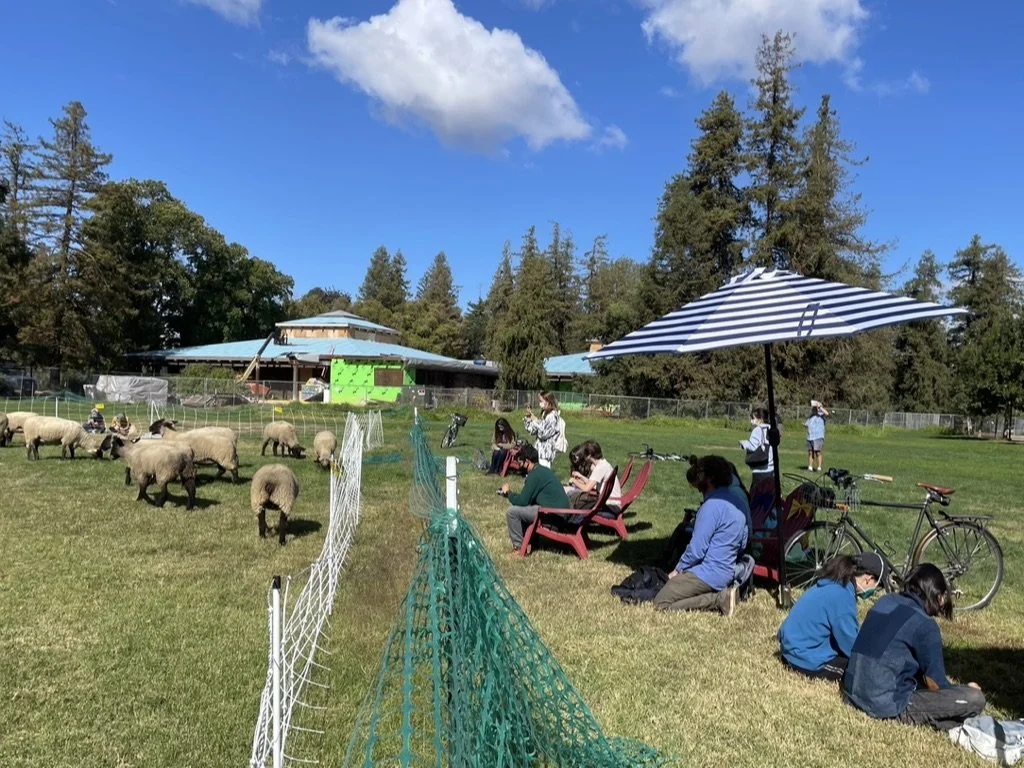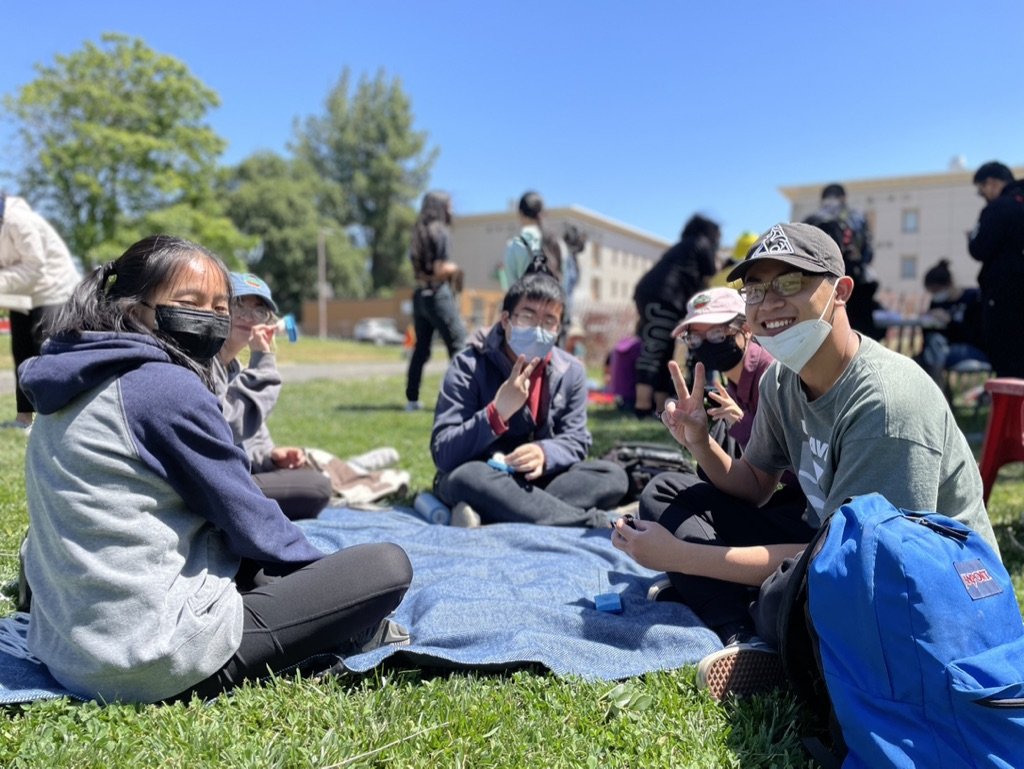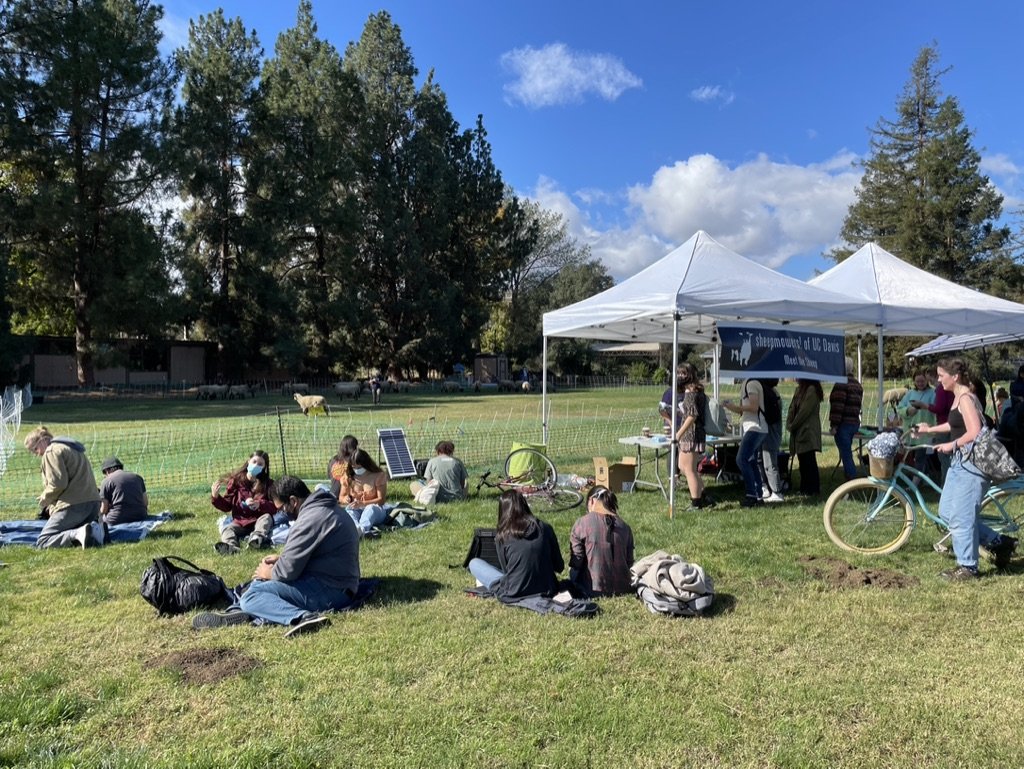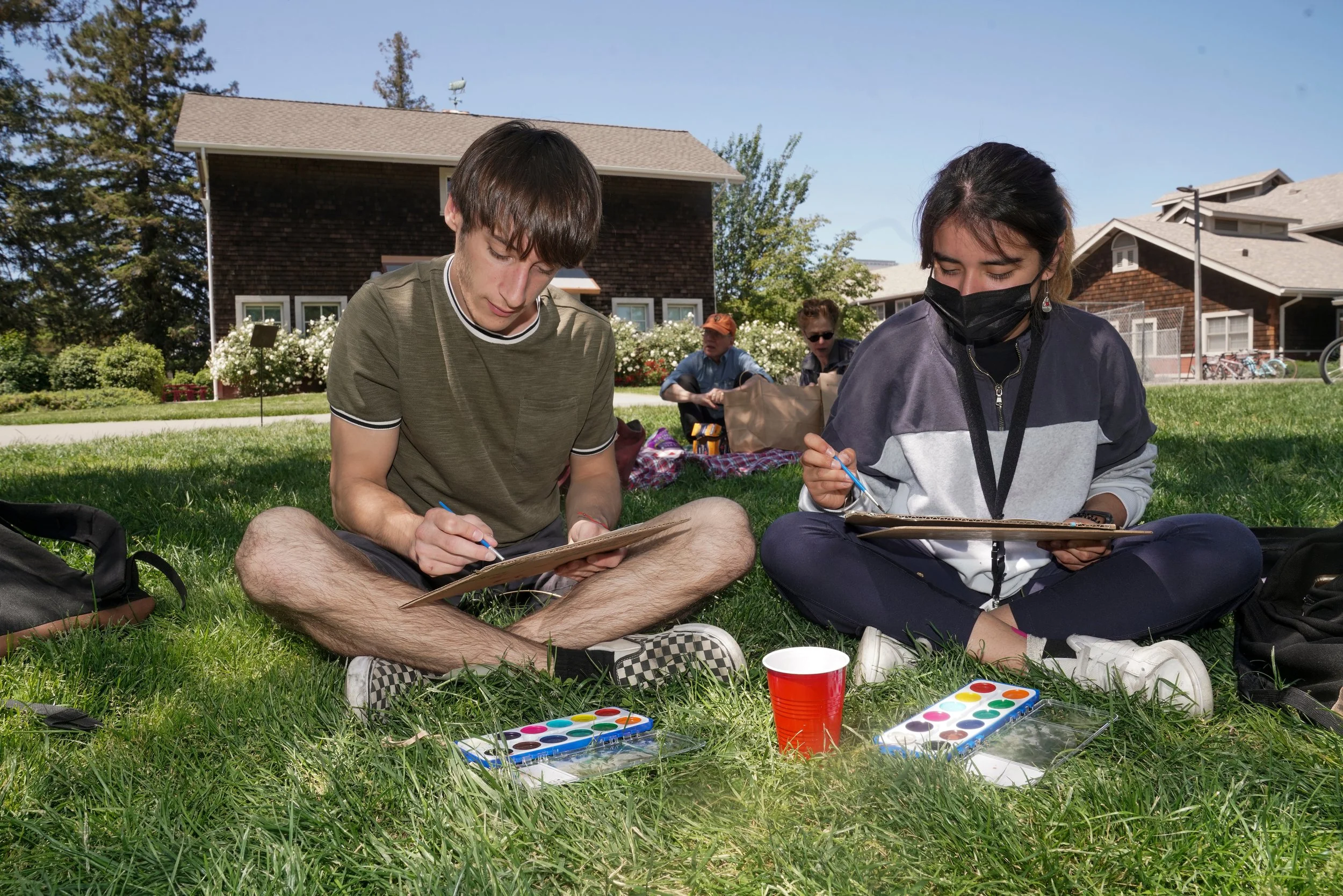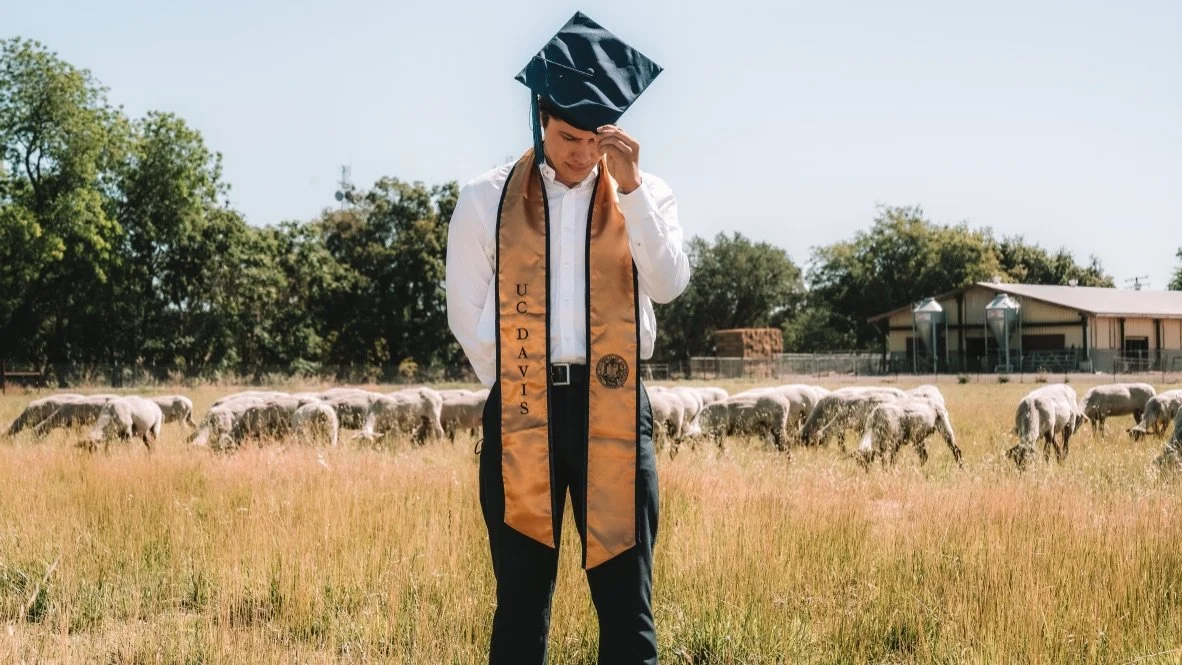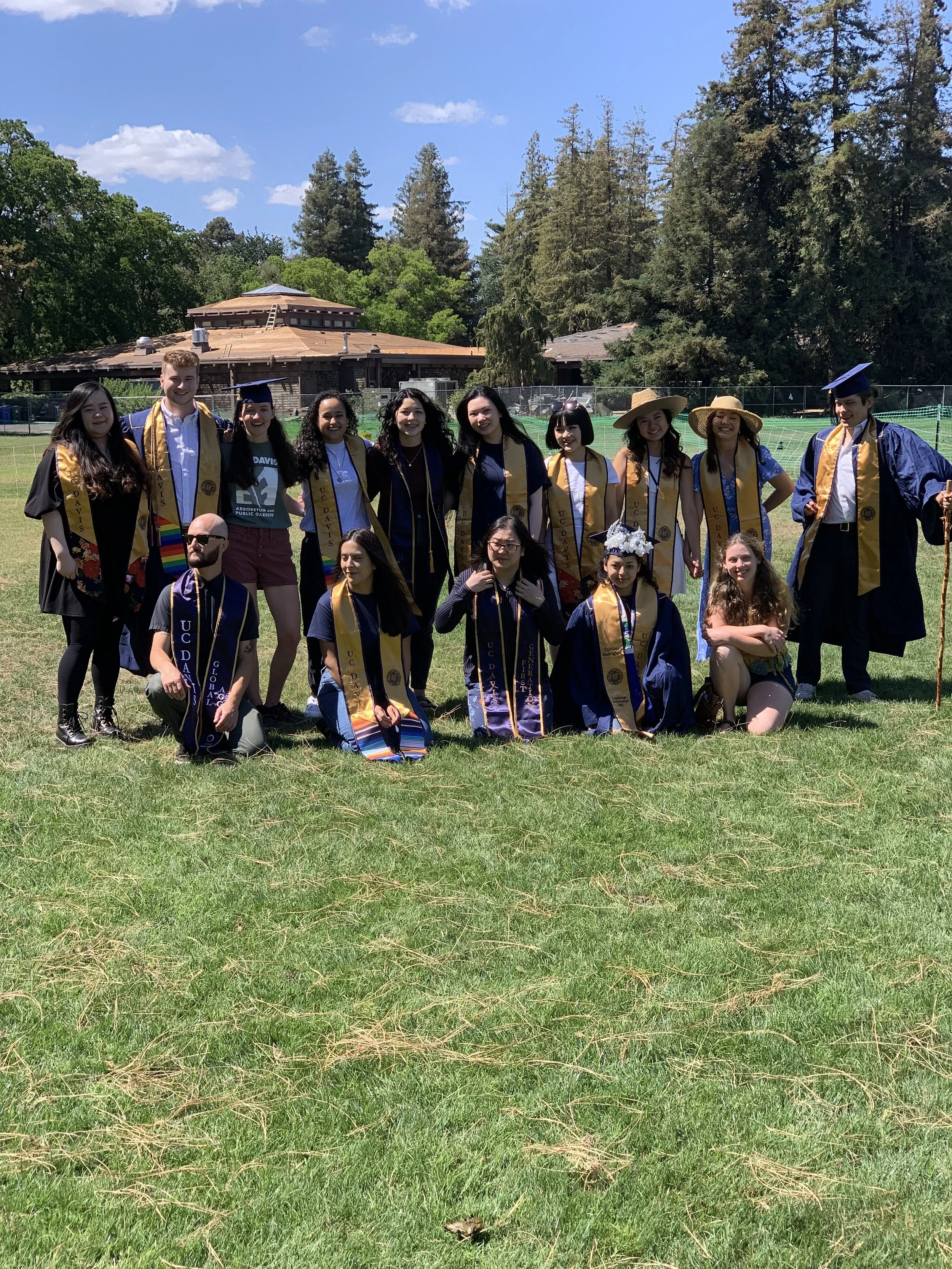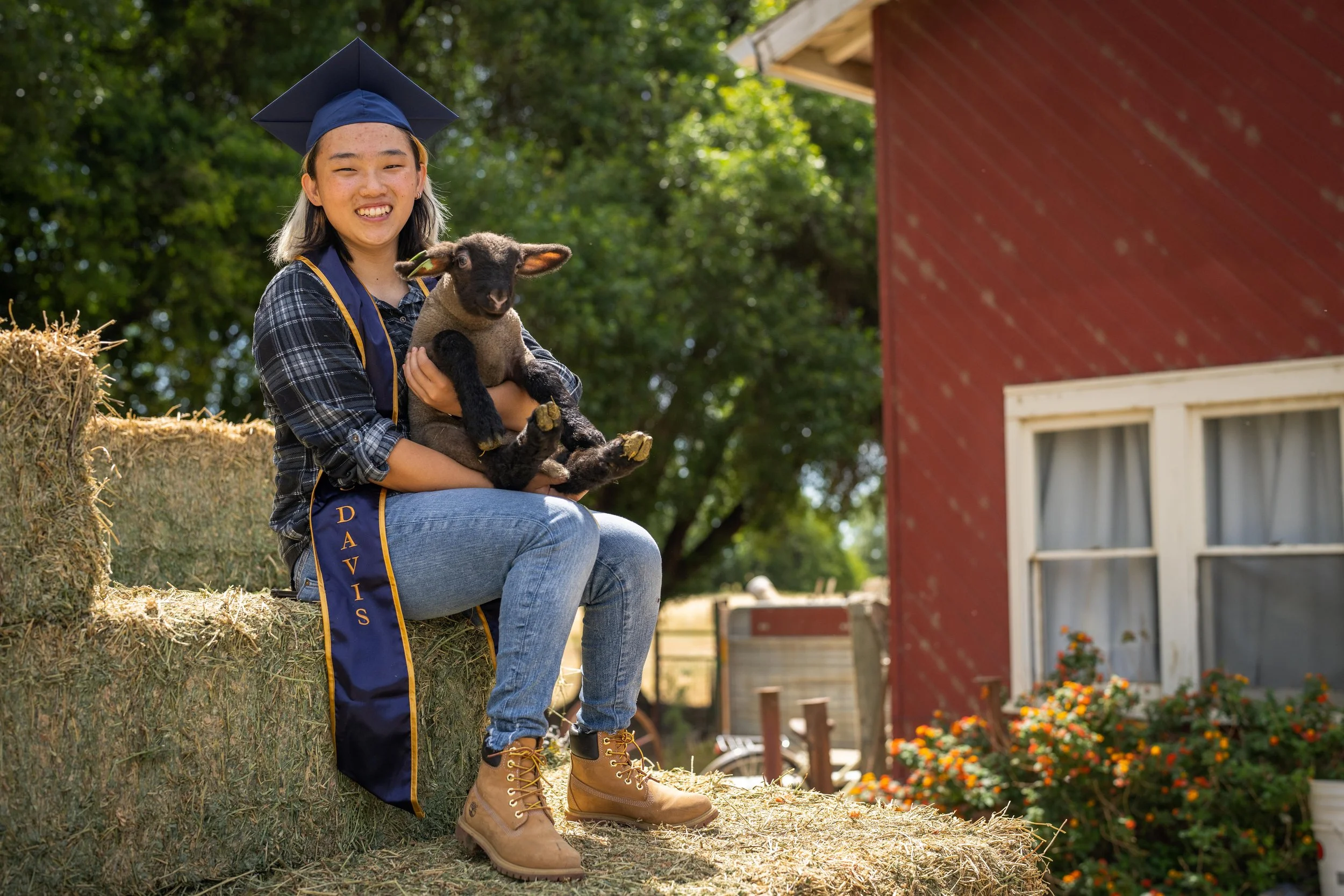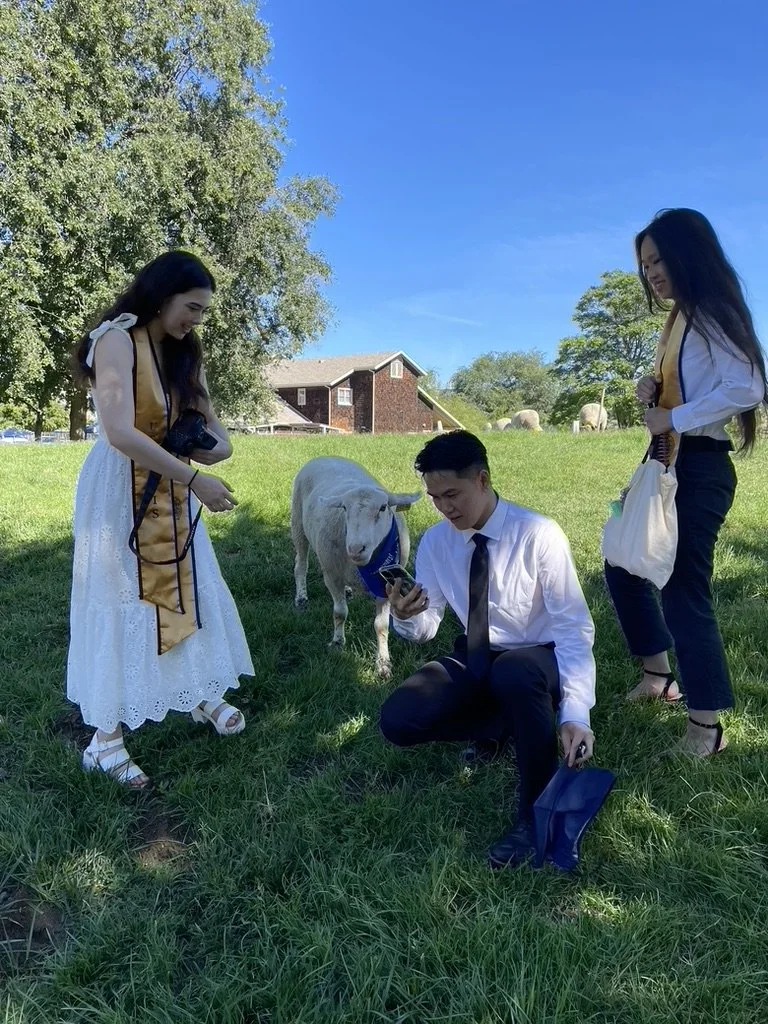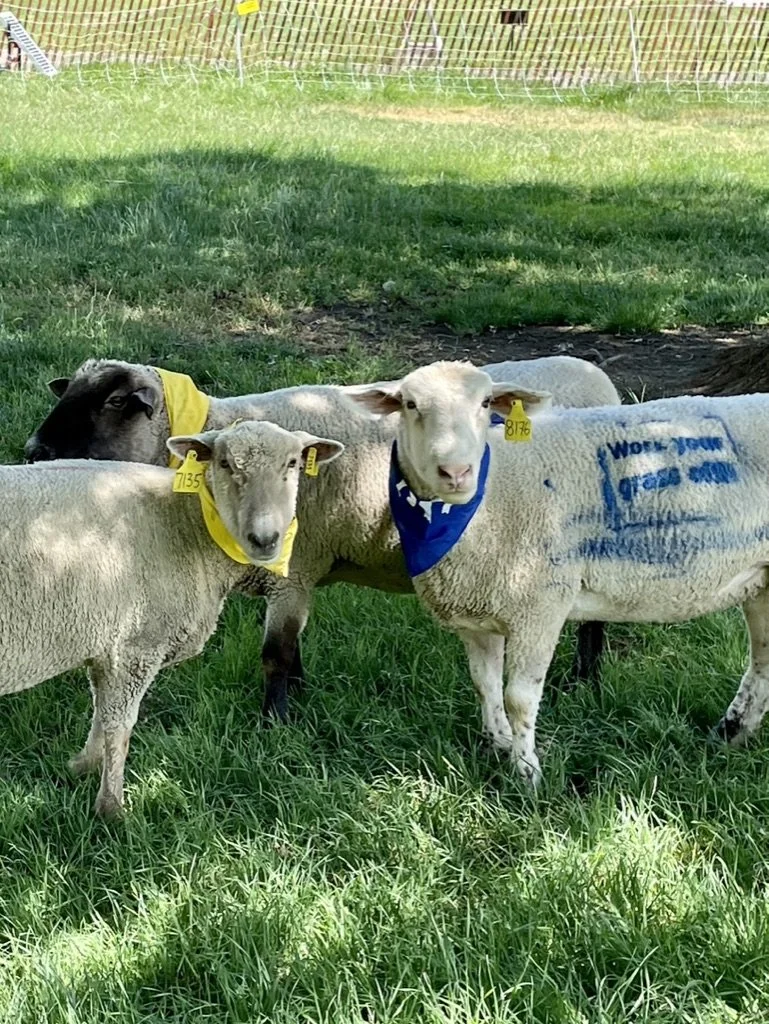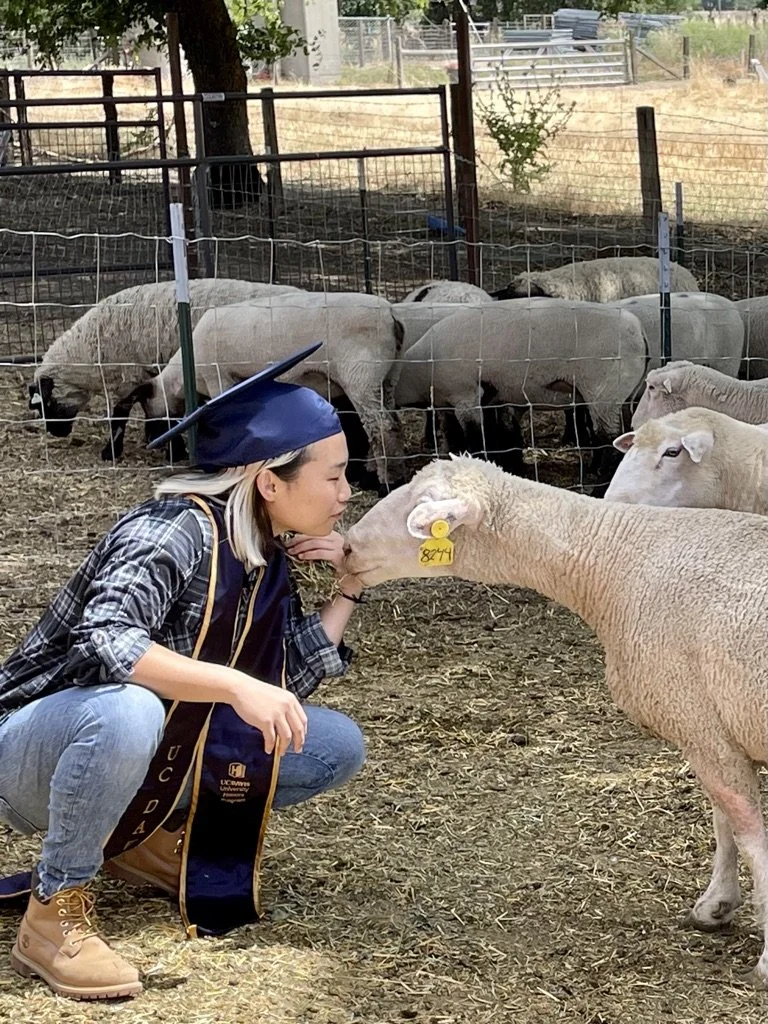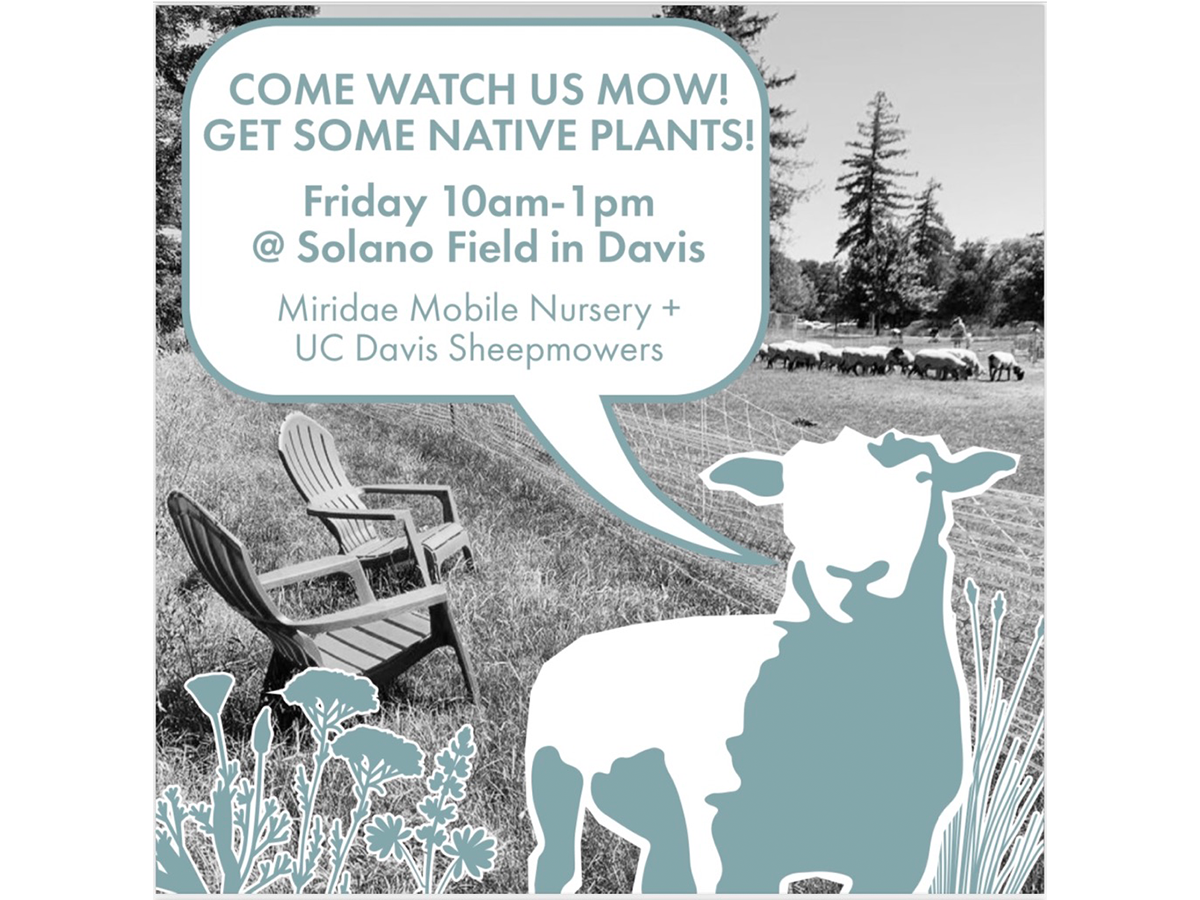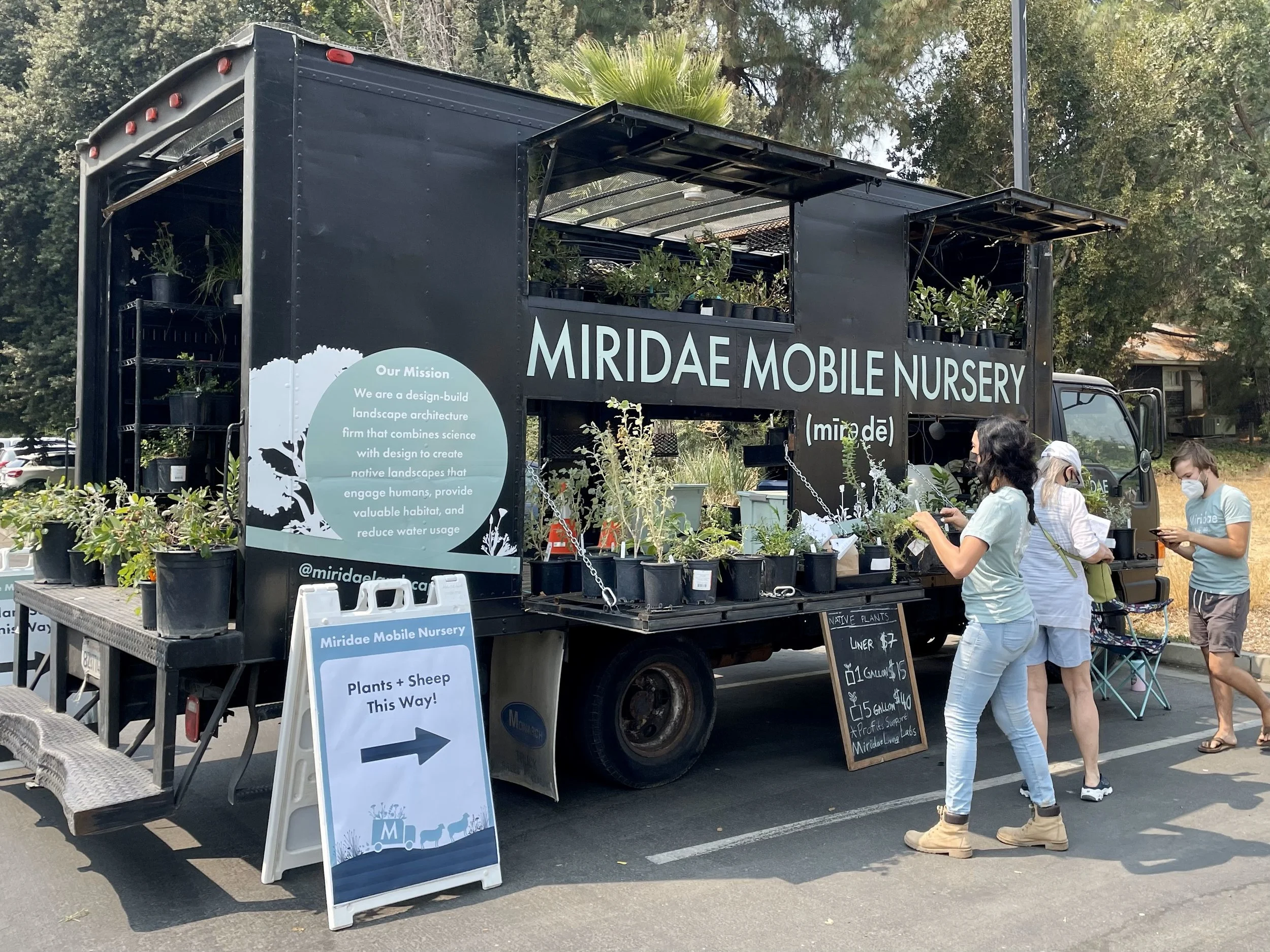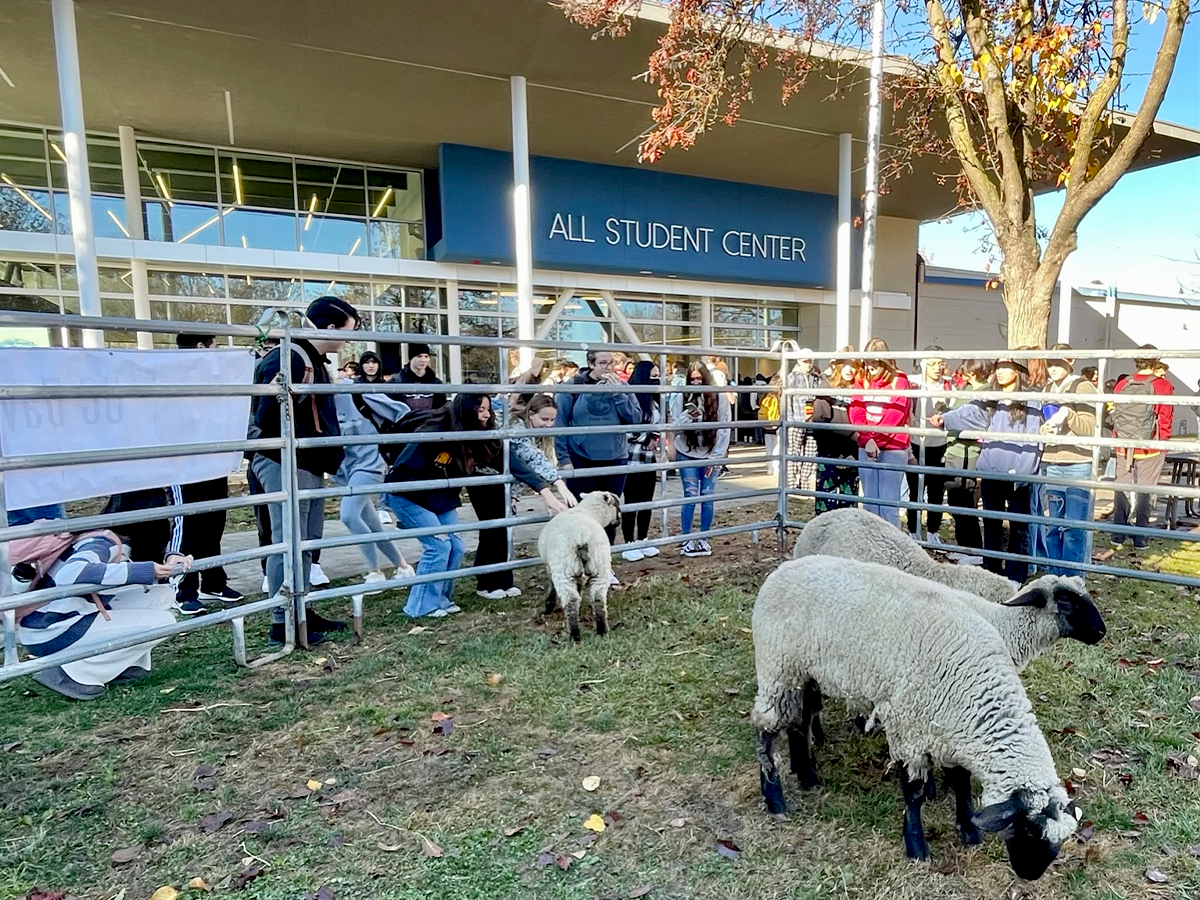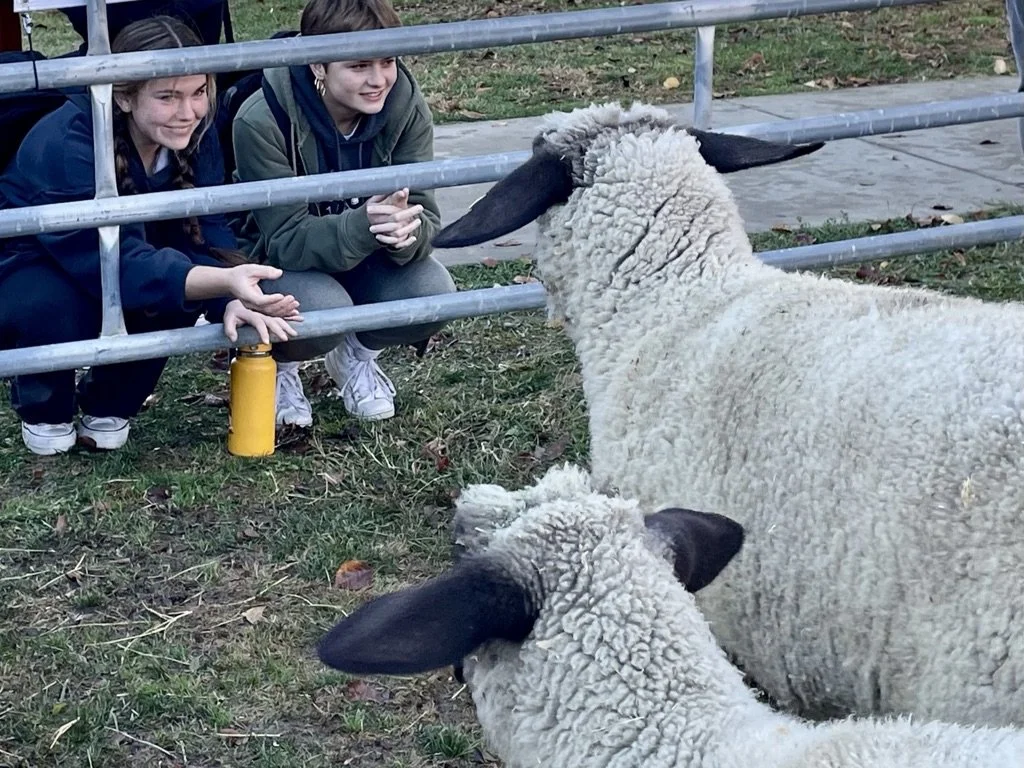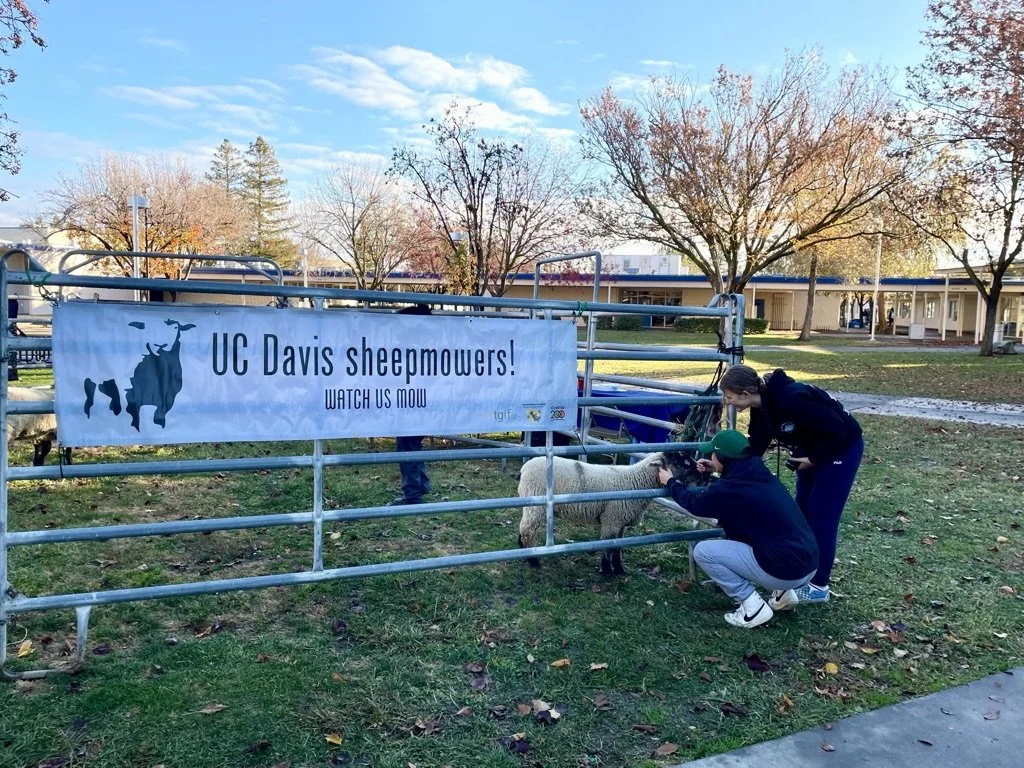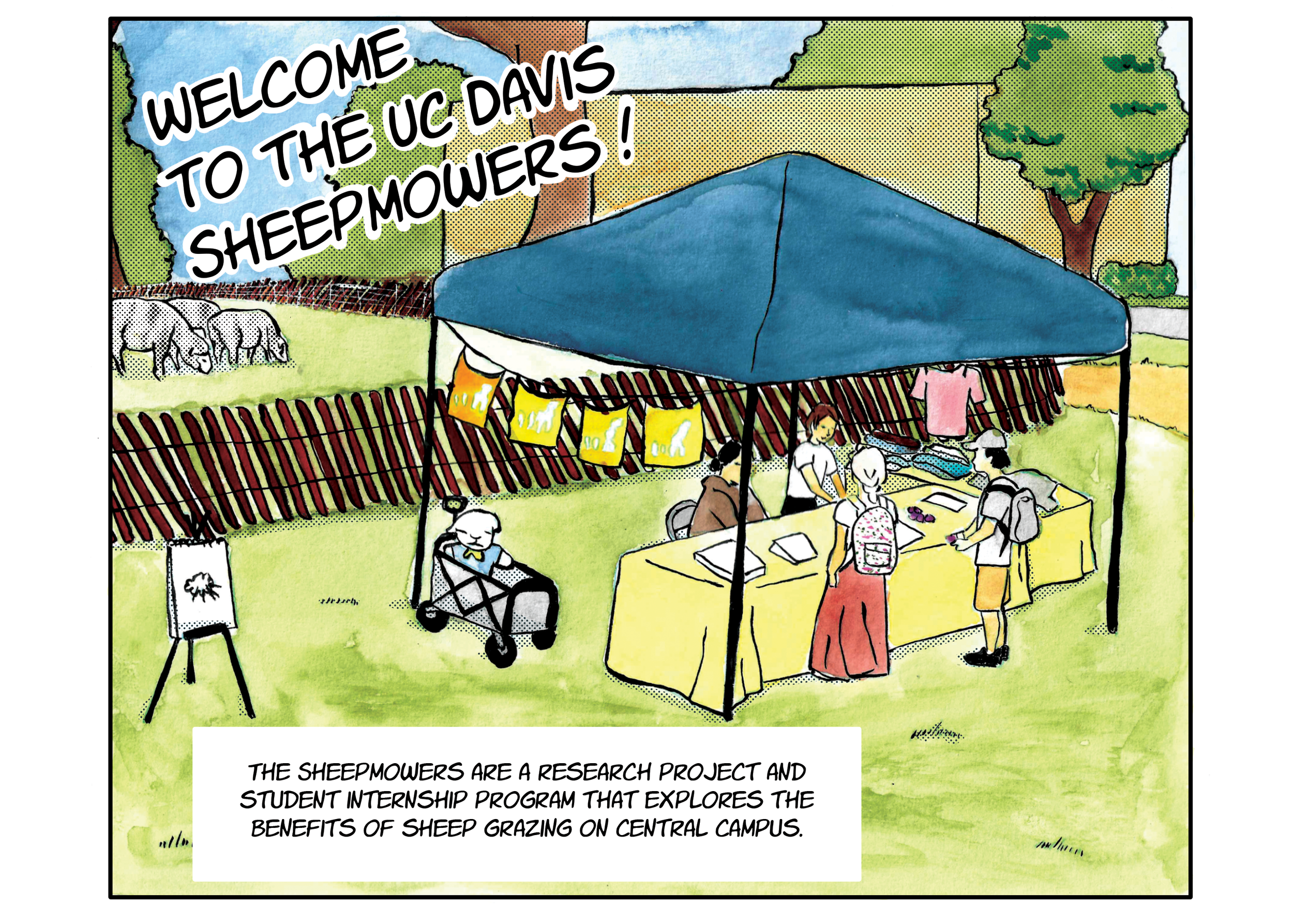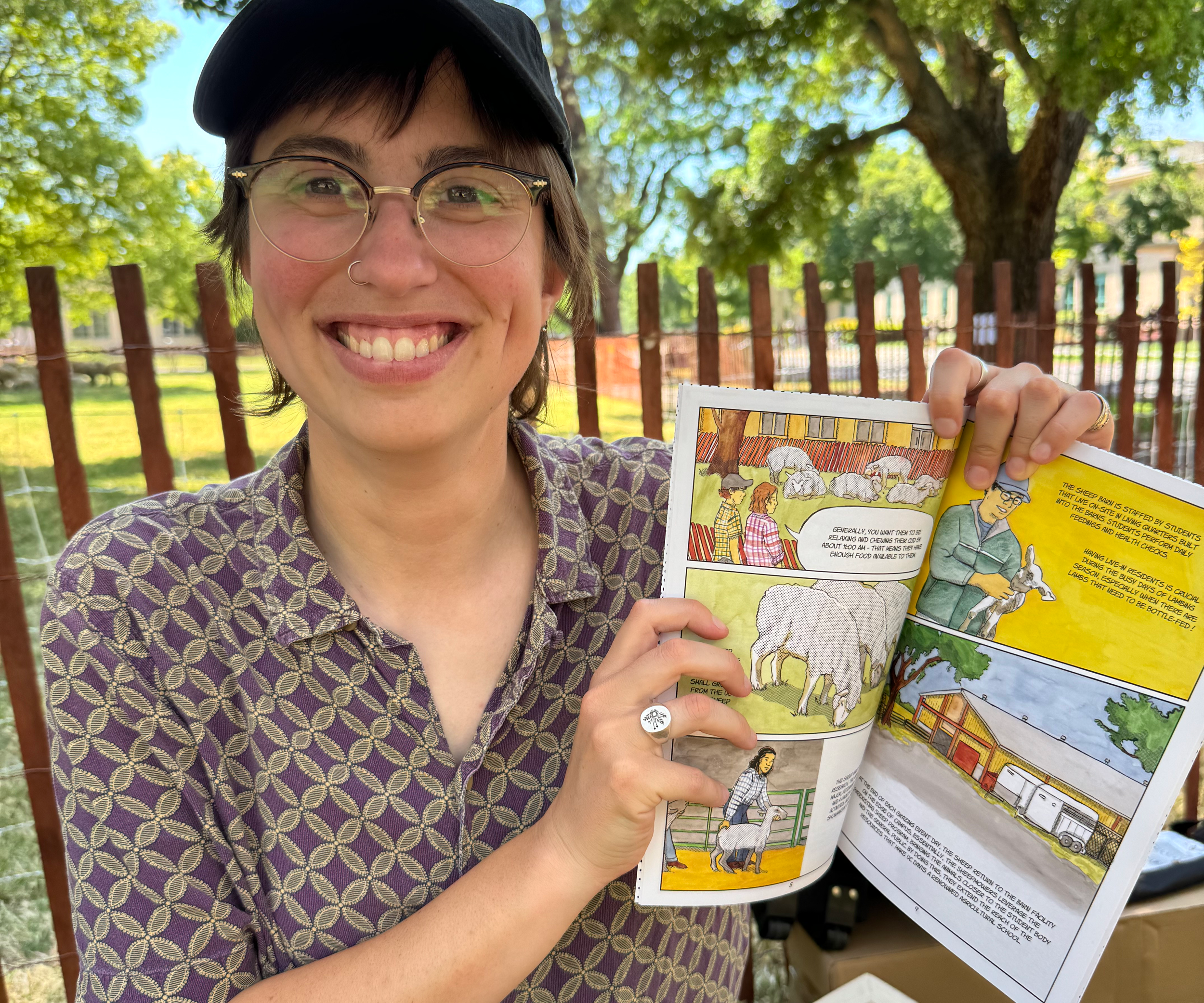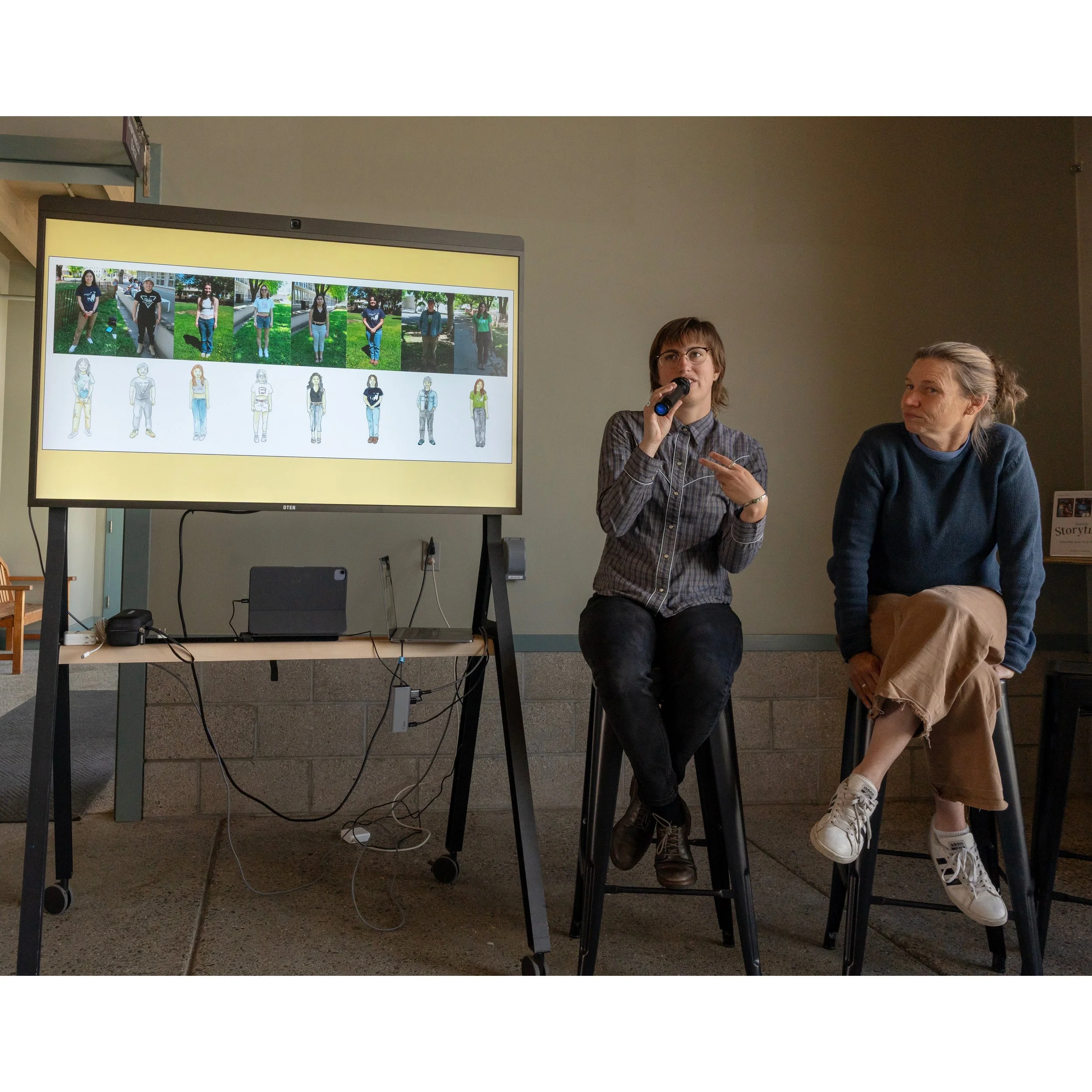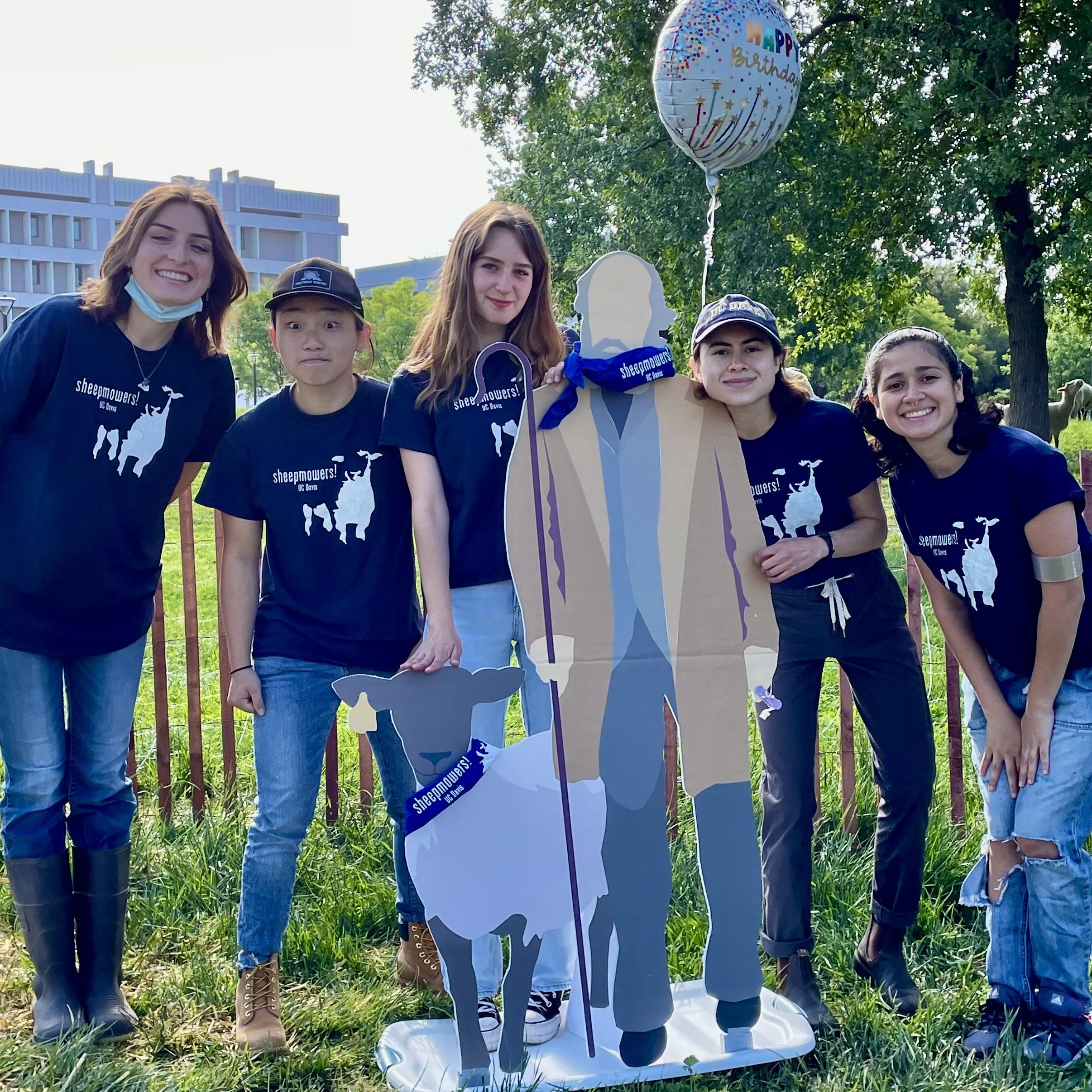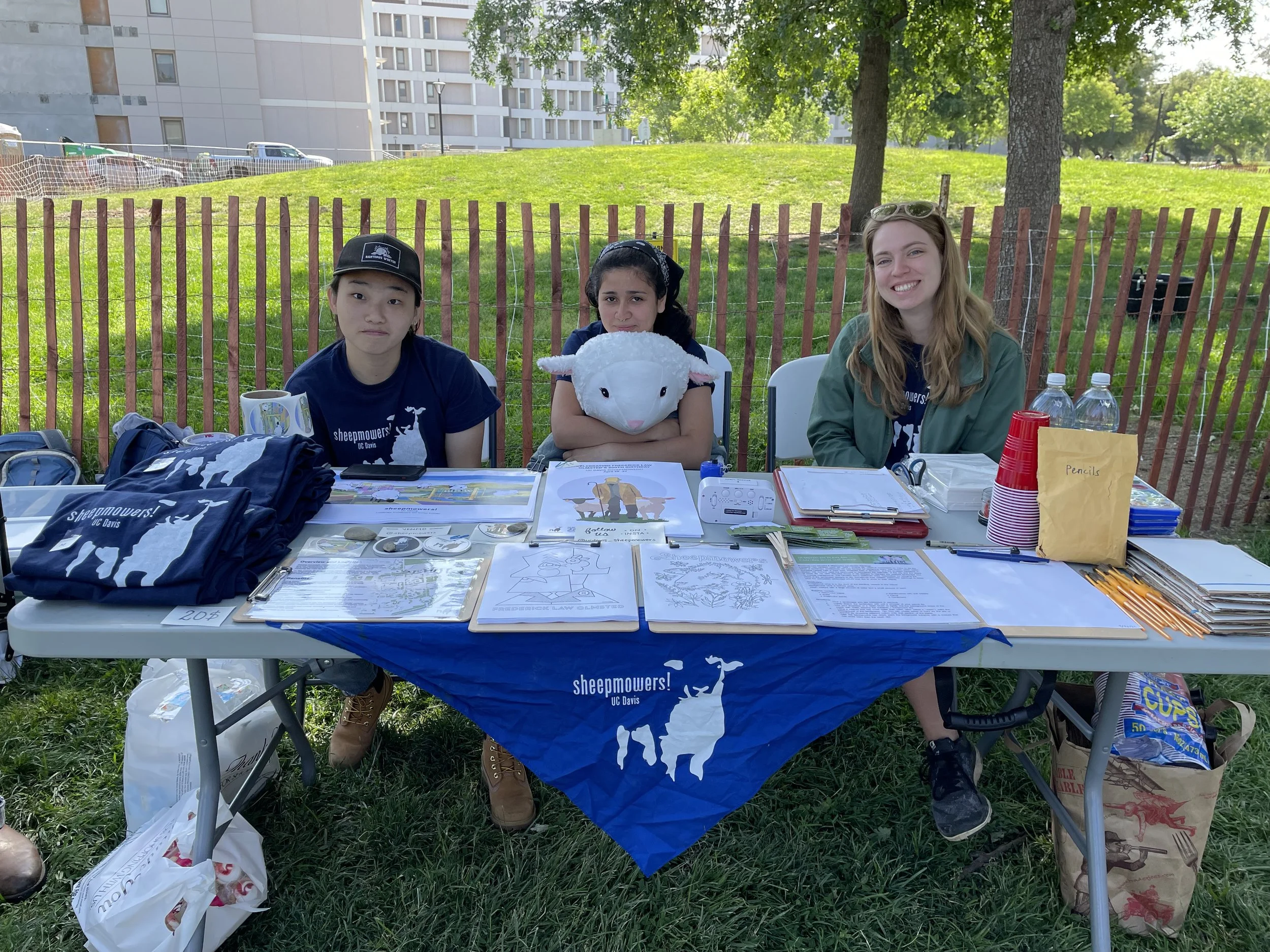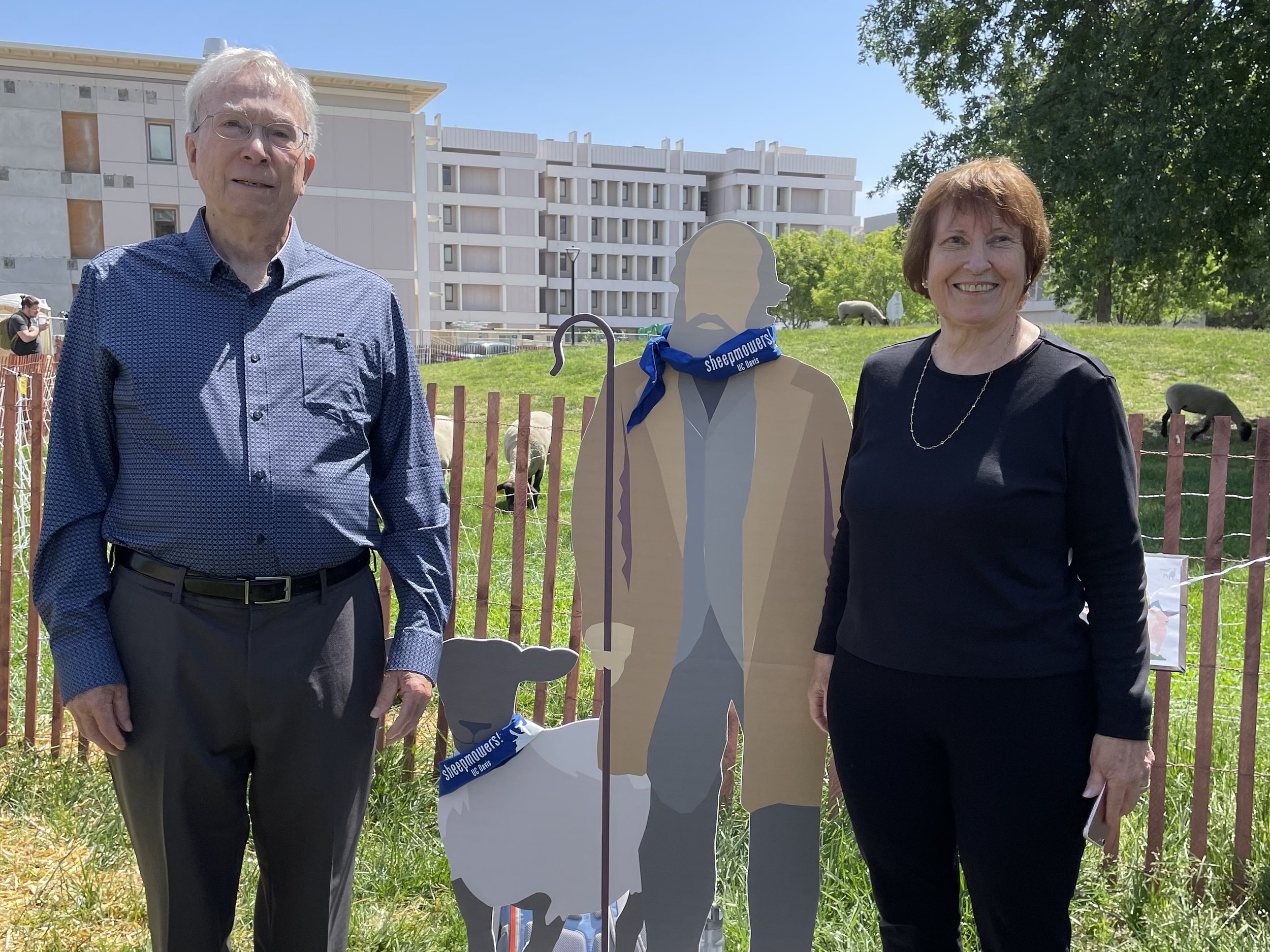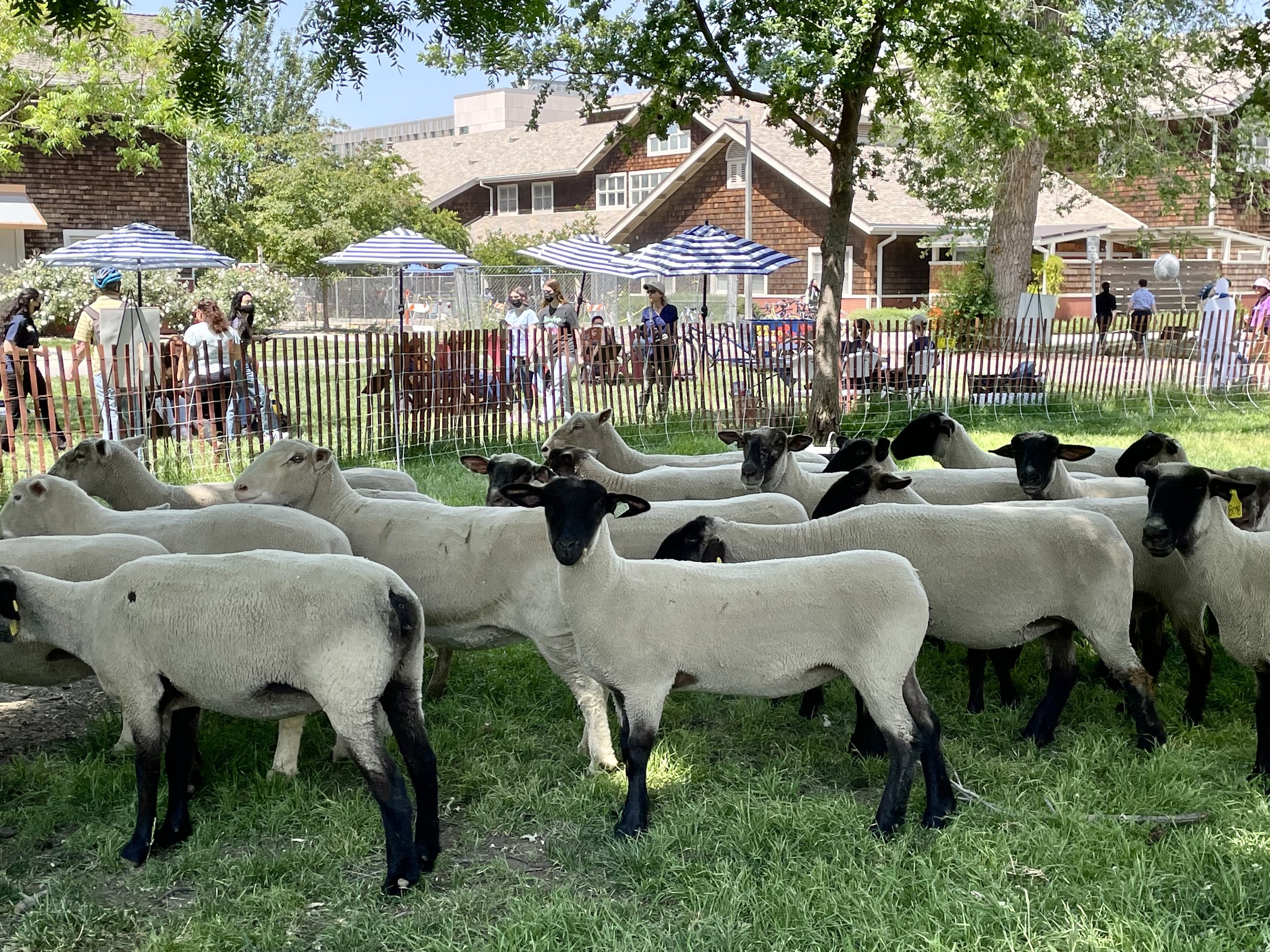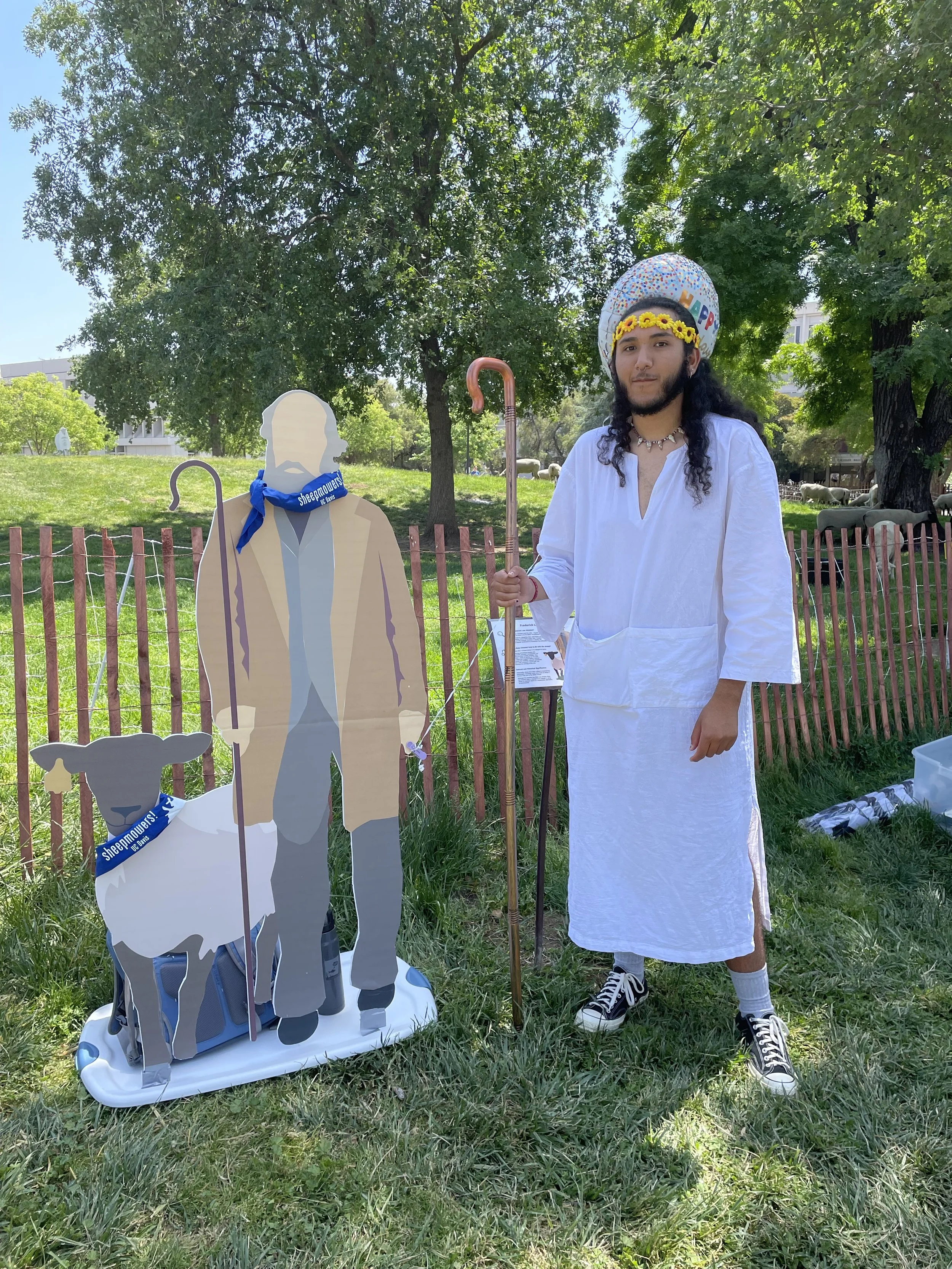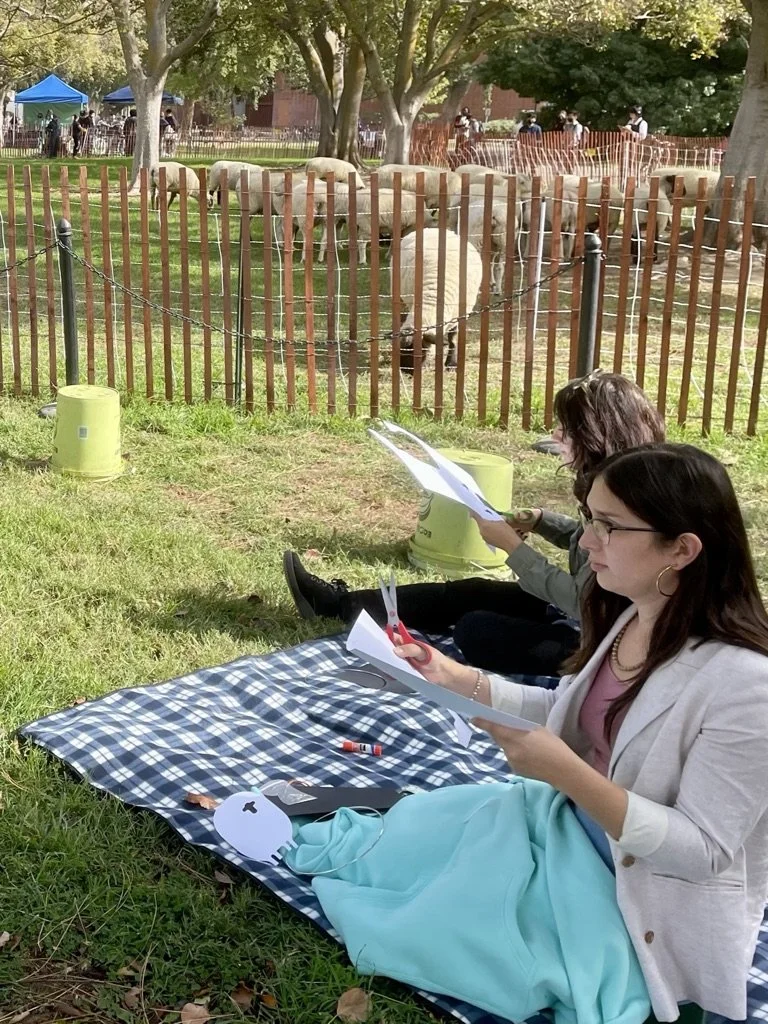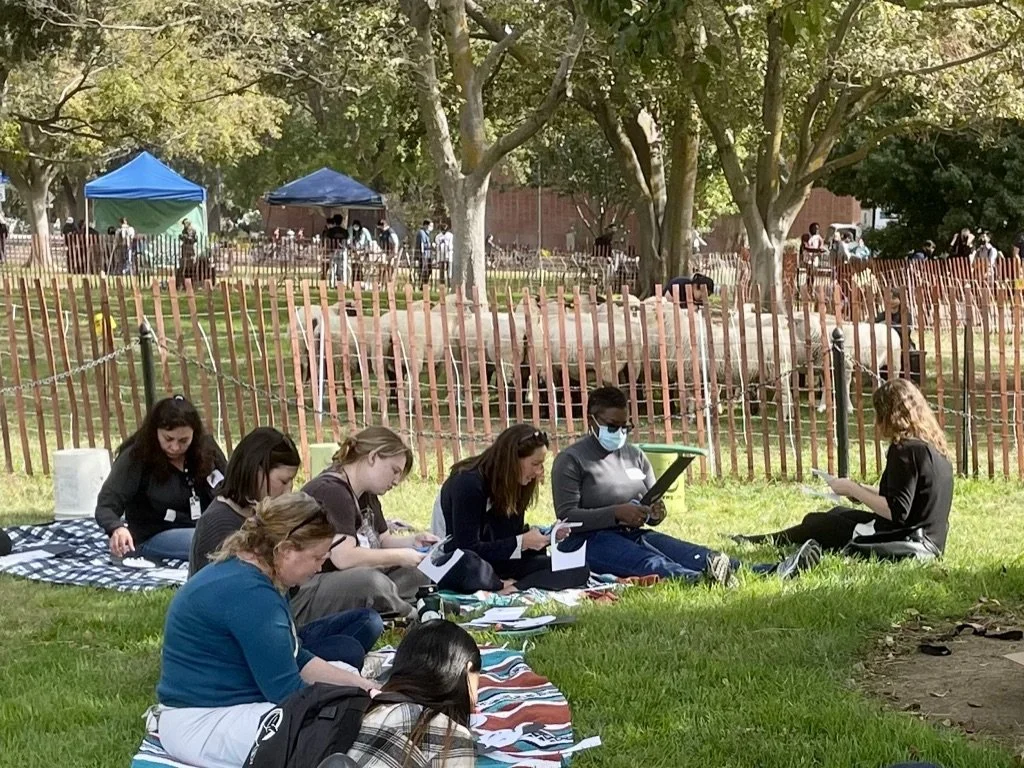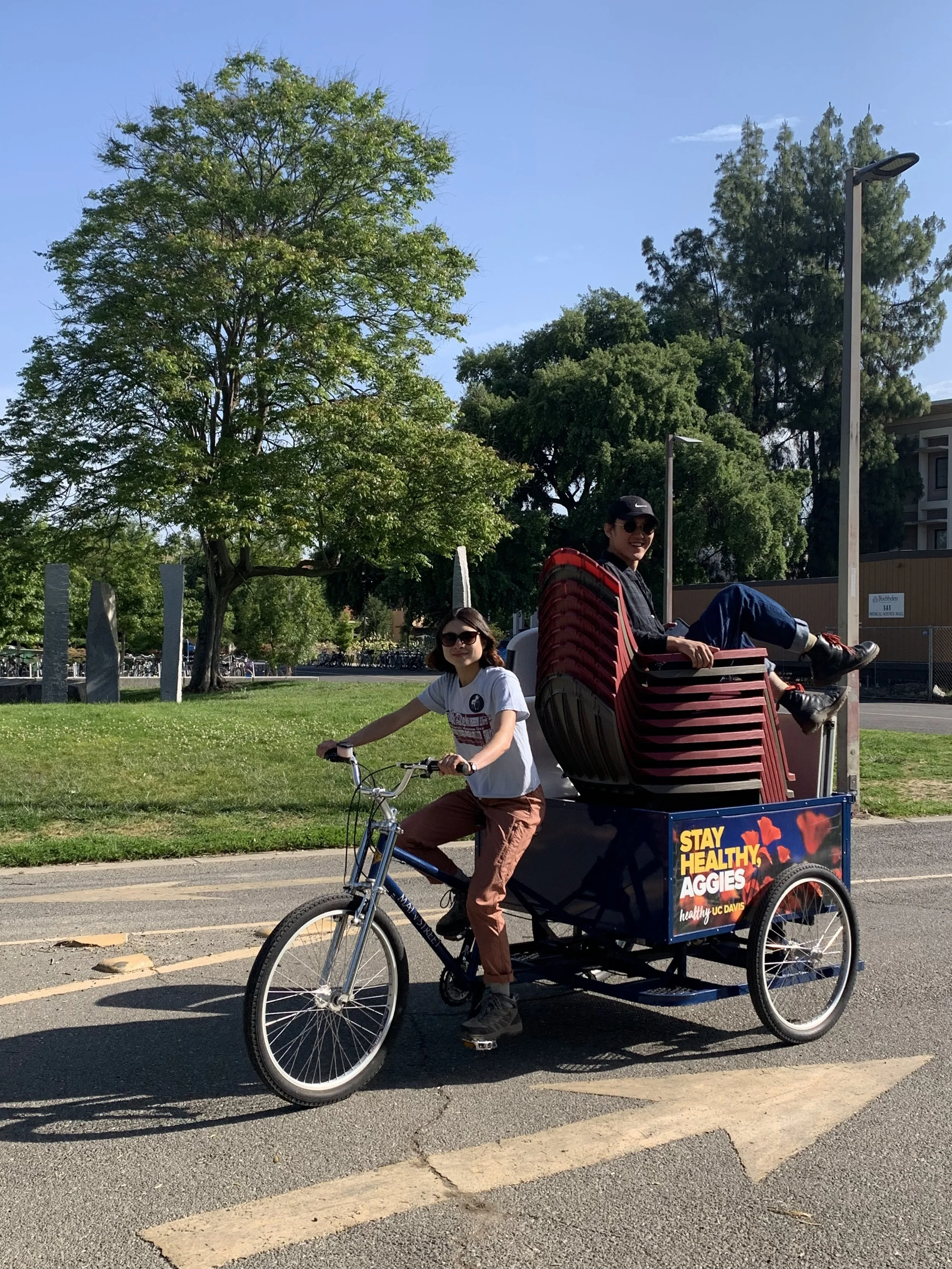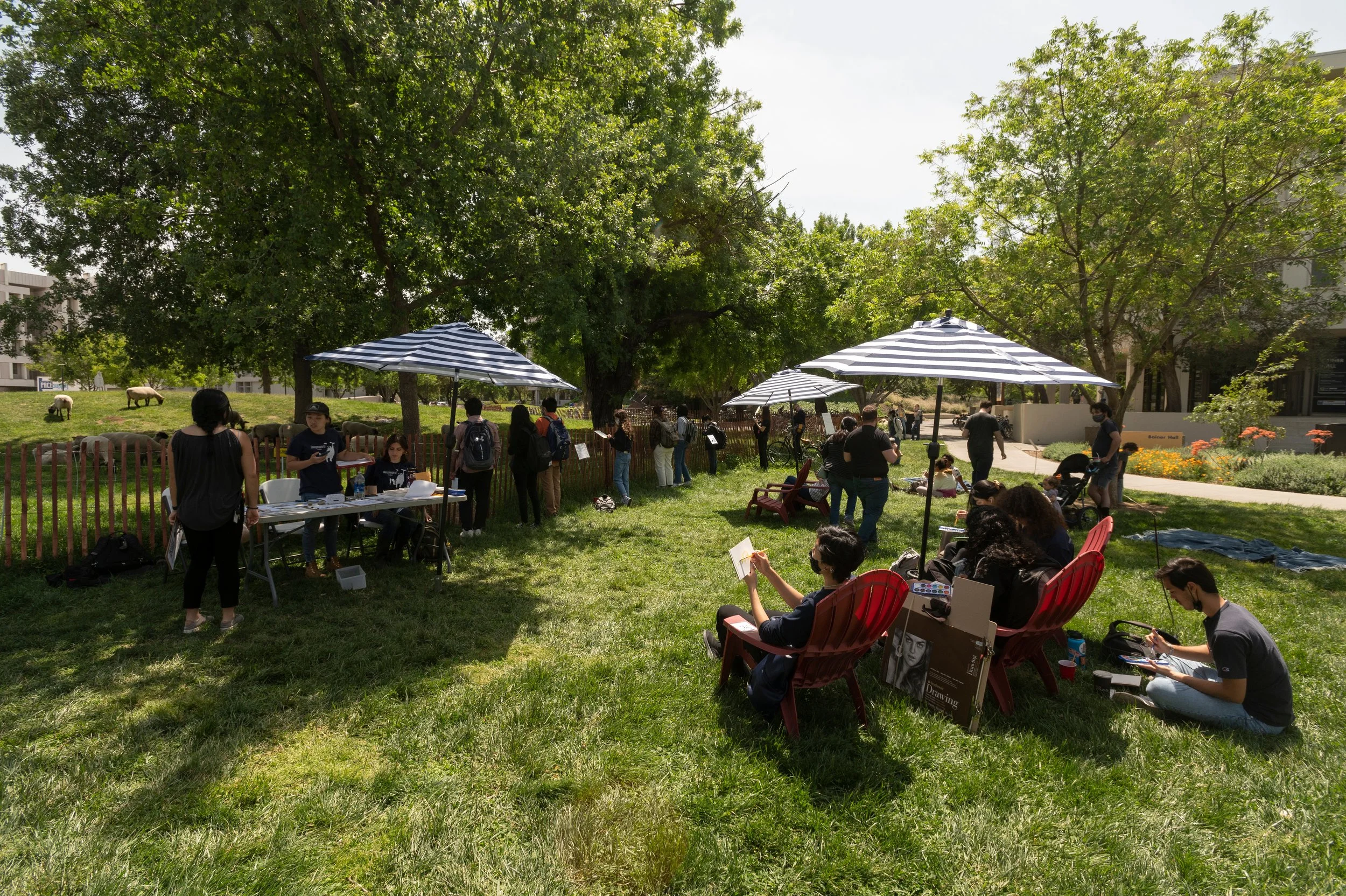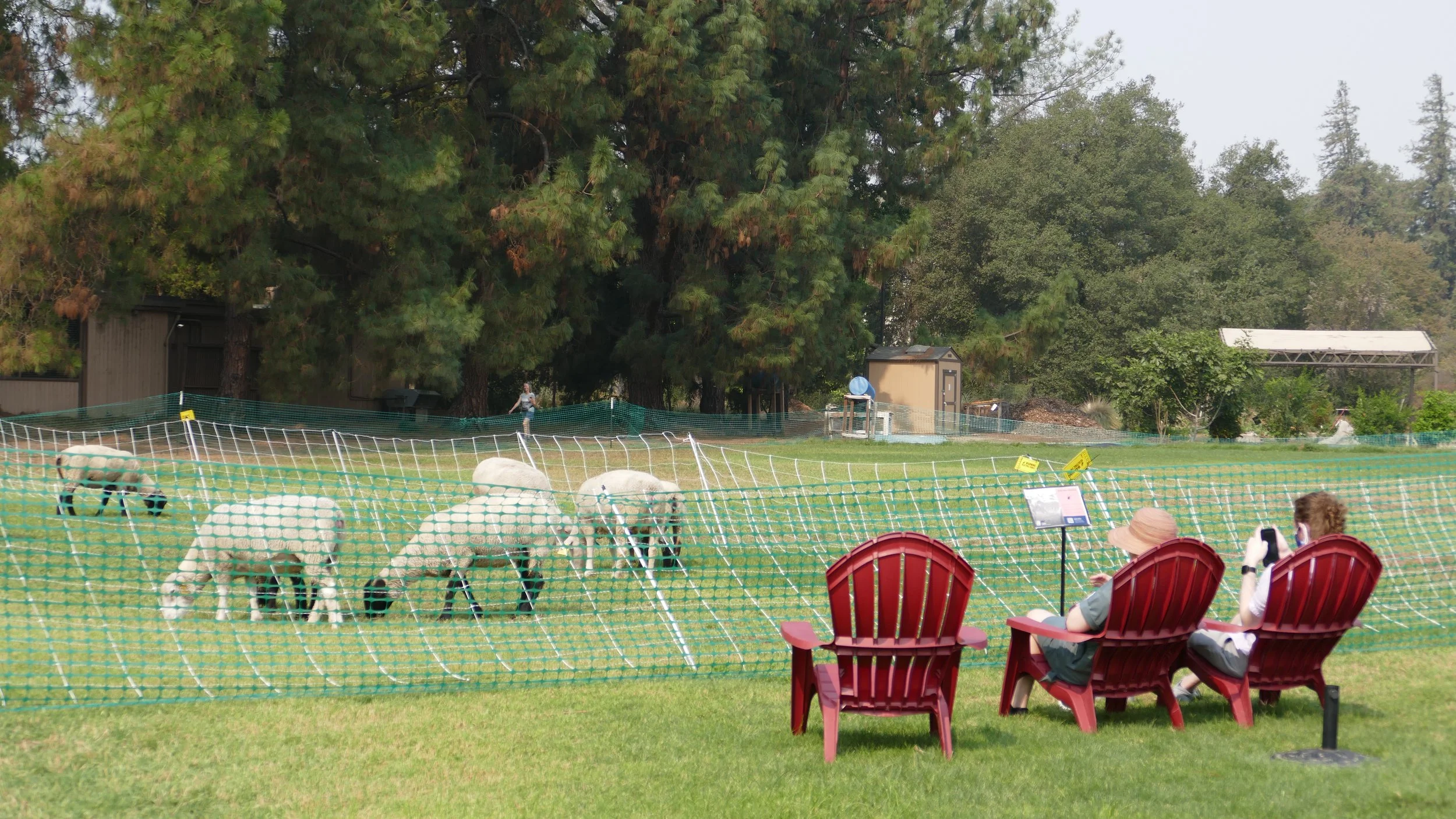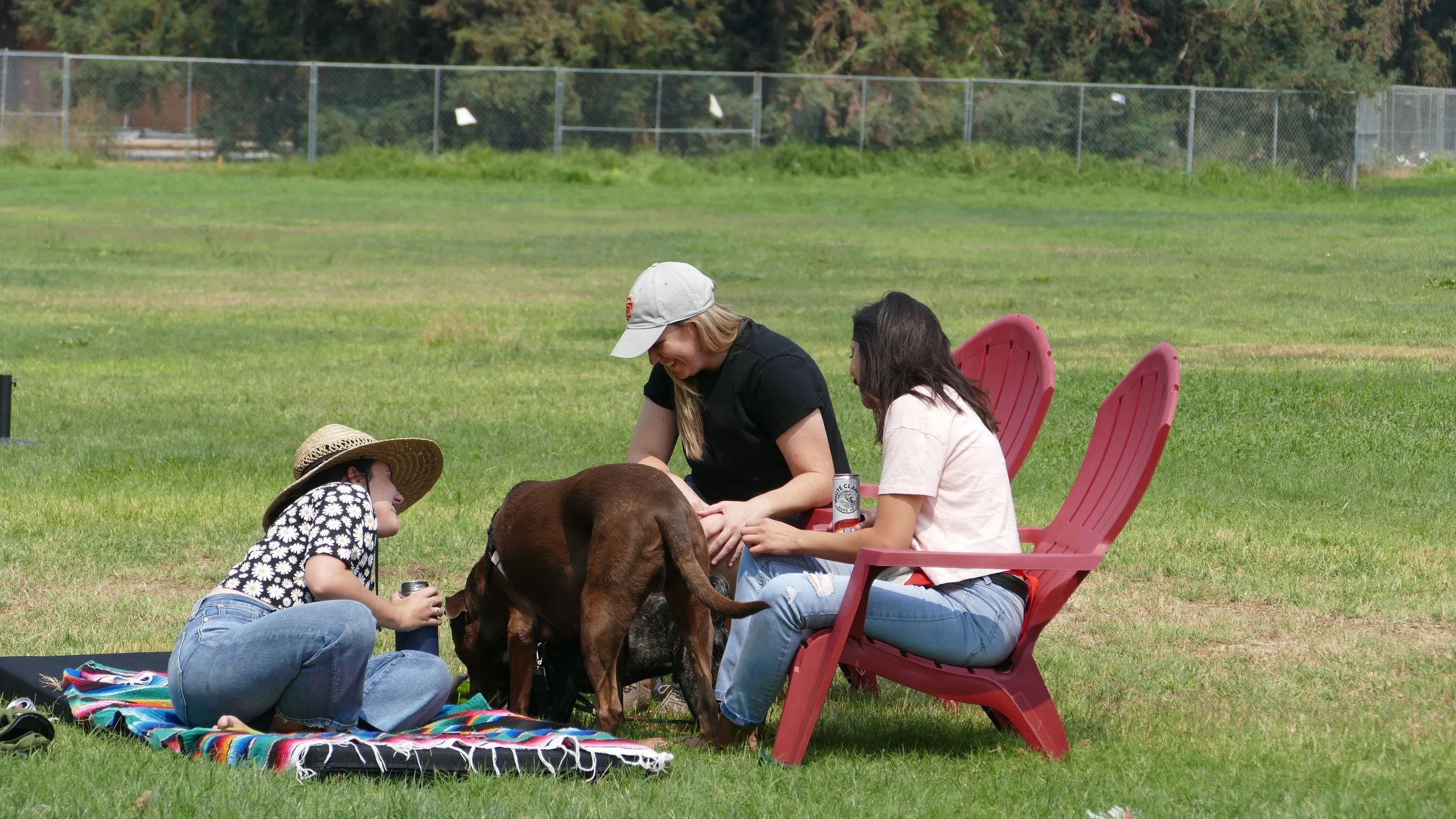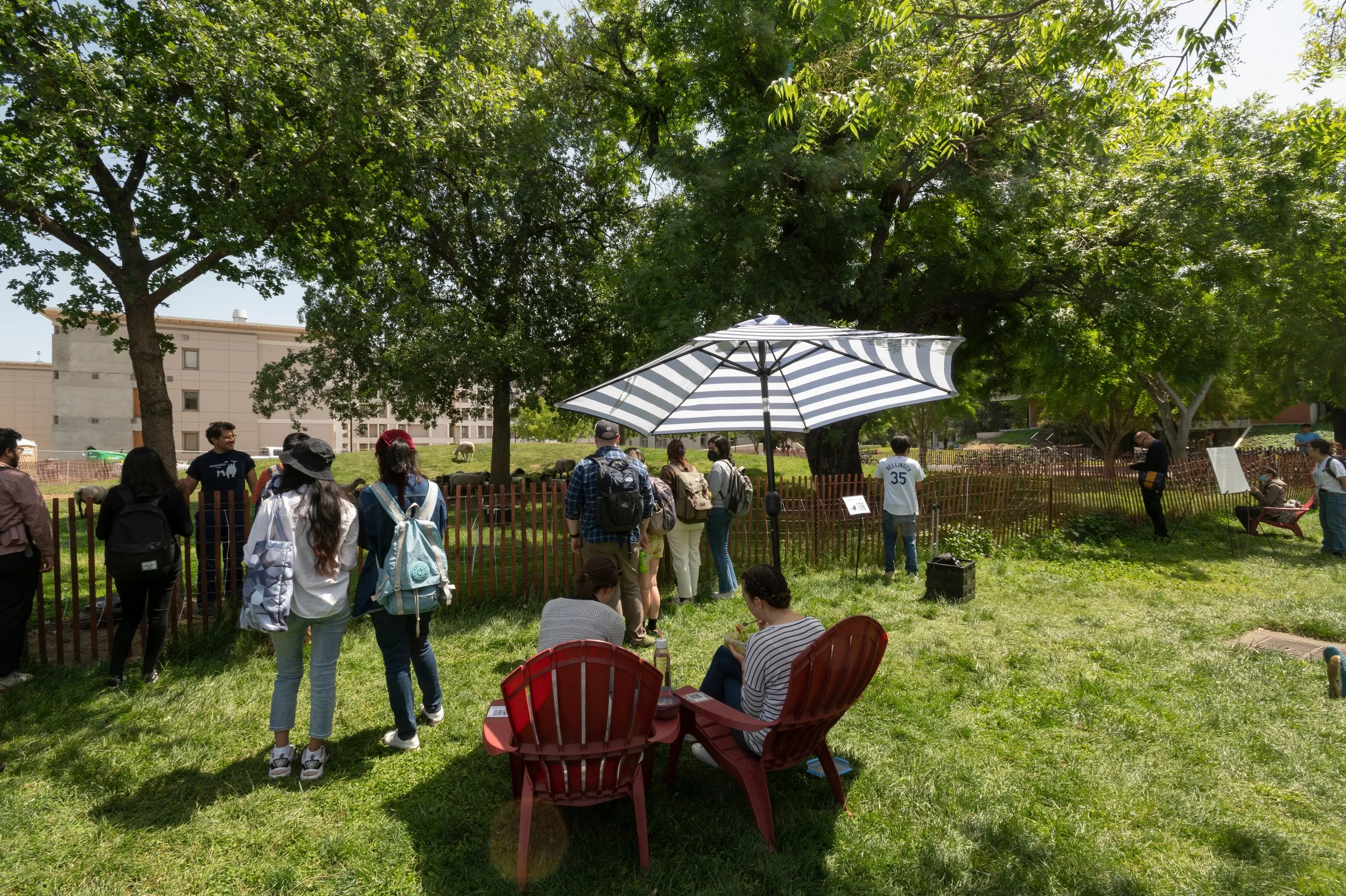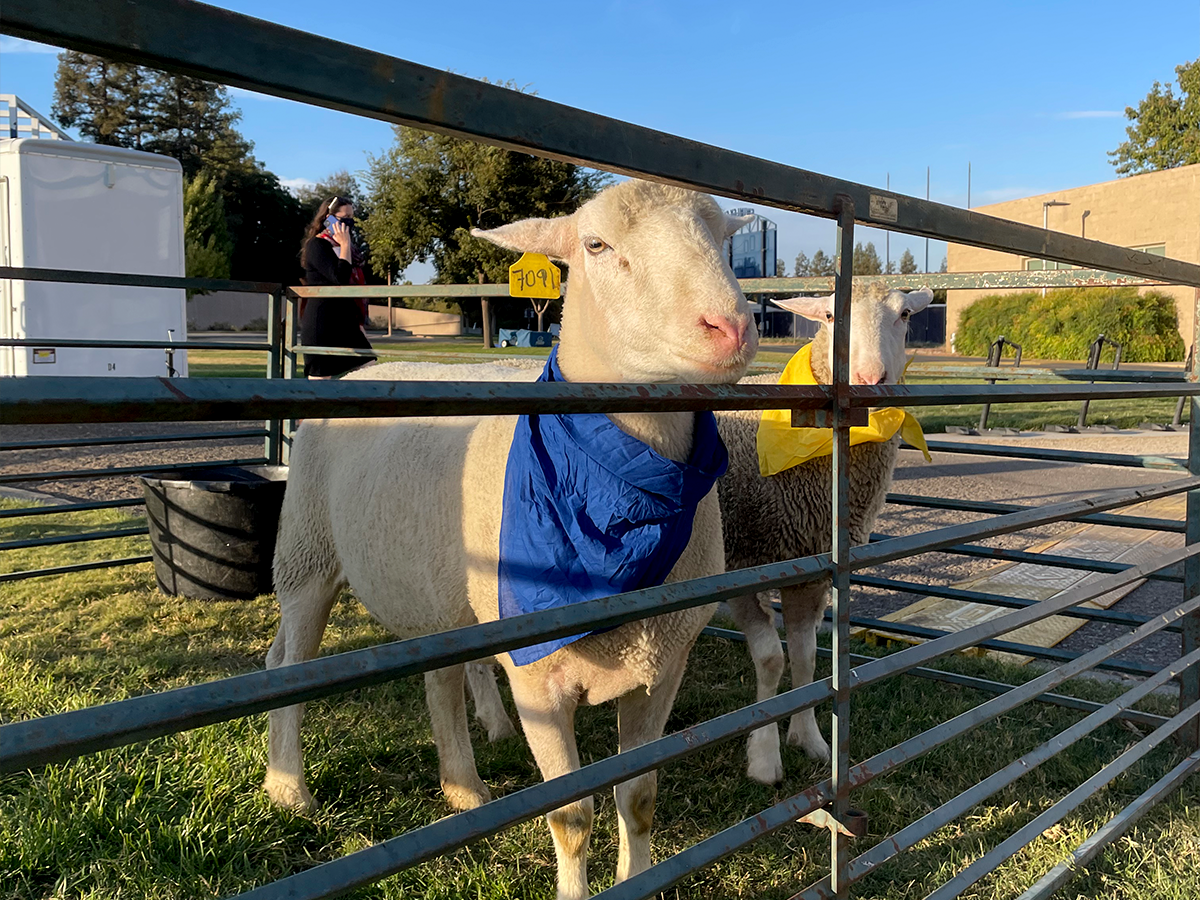Community Engagement
The Sheepmowers have put on a number of public events designed to engage campus and community visitors and encourage them to attend our grazing days. Events, ranging from watercoloring sessions to “felting with the sheep,” bring people together through shared experiences and help them foster new relationships and develop a sense of belonging.
Felting with the Sheep
A perennial favorite of our visitors, participants are provided with a felting needle and a couple balls of wool roving and then invited to take out their aggression by repeatedly stabbing the needle into and out of the wool, transforming it into a mini sheep. It's a proven stress reliever! The UC Davis Fiber Arts Club regularly holds their meetings during grazing events and provides additional instruction on other wool crafts, including knitting and crocheting.
Watercoloring with the Sheep
What could be more relaxing than gazing out onto a pastoral landscape of grazing sheep and putting brush to paper while painting “en plein air?” We provide everything a budding artist could need - watercolor paper, brushes, water, and paints. For folks wanting to explore a creative medium other than watercoloring, we have Sheepmower coloring pages and sketch pads, as well as markers and pencils. The event is widely promoted by the Animal Drawing at Davis Club - club members typically meet up at the grazing site to sketch and paint when the sheep are out grazing.
Grad Photos with the Sheep
As a student of an agricultural, land grant university, there’s something pretty iconic about getting your graduation photos taken with farm animals, specifically the Sheepmowers. And there’s no better way to celebrate graduation than a yellow and blue party with the sheep.
Collaborations
Whenever possible, we partner with collaborators to bring in new perspectives and share novel ideas related to all things sheep.
Grow and Graze, with Miridae Mobile Nursery
In spring of 2021, we partnered with Miridae, a Sacramento-based native nursery and design/build landscape firm. Miridae brought their award winning Mobile Nursery (“the taco truck of nurseries”) to our grazing site for a native plant sale and sheep grazing extravaganza. In addition to providing visitors with a selection of native plants suitable for home gardens, we gave visitors bags of waste wool (wool removed from sheep bellies and bottoms) for use as a sustainable and water-retaining fertilizer that could be added to the bottom of planters or worked into garden soil.
A Roving Band of Therapy Sheep, with Davis High School
The Sheepmowers took their show on the road in December 2022 during the week before final exams at Davis High School. Davis High School Counseling and Davis Future Farmers of America (FFA) partnered with the UC Davis Aggie Mental Health Ambassadors and the Sheepmowers to put on a grazing event at the Davis School designed to reduce stress and anxiety and lift students’ spirits. Students could learn about mental health resources, sketch the sheep, or simply observe them as they grazed.
The Sheepmowers partnered with MFA grad student Raty Syka to create Sheepmowing HEALS, a collaborative documentary style comic project exploring multi-functional landscapes and sheep grazing. Made during the Sheepmowers’ 2023 and 2024 grazing seasons, the comic collects their goals, activities, and insights into 40 pages of full color illustration and text. Raty, an illustrator, comic artist, and printmaker, creates visual media that explores issues at the heart of agriculture and sustainability in surprising ways. Sheepmowing HEALS is part of her final thesis.
Sheepmowing HEALS Comic, with Raty Syka, UC Santa Cruz Environmental Art & Social Practice MFA ‘24
To celebrate the 200th birthday of Frederick Law Olmsted, the father of landscape architecture and early adopter of using sheep to maintain lawns, the Sheepmowers threw a lawn party. Proceeding the event, we published an article, Sheepscapes and Mr. Olmsted, on the National Association of Olmsted Parks’ (NAOP) Olmsted 200 website and publicized the celebration nationally. As a special treat, Olmsted’s great-granddaughter Mary Gil Jordan joined the party!
Celebration of Frederick Law Olmsted’s 200th Birthday, with the Olmsted Network
Sheep “Mow”-biles, with UC Davis Staff and Faculty Health & Well-Being
As part of a one day fall “sheep showcase,” a group of staff and faculty members took part in a Nature Rx workshop designed to provide participants with hands-on activities to incorporate nature into their daily lives. Members of the group (selected by a random drawing) learned how to make decorative sheep mobiles while watching the Sheepmowers graze the lawn in front of Wickson Hall.
Chair Share for Sheep Peeping, with the UC Davis Arboretum and Public Garden
The aim of the Chair Share program is to encourage community members to spend more time outside to reduce stress and improve mood. Arboretum Ambassador interns typically place 10 red Adirondack chairs out to a scenic location on campus on a weekly basis. When the Sheepmowers are on campus, the chairs are laid out around the perimeter of the lawn where they graze.
The Sheepmowers were invited to a gala! The event brought top level donors to UC Davis for a special insiders’ look at the research being produced on campus throughout its colleges and the Health Campus. The Sheepmowers were included as an example of research that “sparks innovation and creativity.”
Gratitude Gala, with the College of Agricultural and Environmental Sciences Office of Development & Donor Relations
UC Davis Sheep Related Research
This study began in 2022 with sampling lasting through the Fall of 2024. It quantifies the impacts of sheep grazing on socio ecological drivers of sustainability in 45 commercial vineyards. It harnesses innovation from growers to enhance research relevance and promote producer engagement in research, outreach, and development of best management guidelines to support adoption. We will monitor metrics spanning: soil quality and health, plant, microbial, invertebrate, and avian communities, grape yield and quality, and the economics of the different systems.
Sustainability outcomes of integrated sheep vineyards systems.
Tommy Fenster, PhD. Western SARE, UC Davis, Ecdysis Foundation, Napa RCD, CAFF, Fibershed, Paicines Ranch, Vineyards and Contract Grazers across CA
Multifunctionality of soil ecosystems in diversified Almond orchards.
Krista Marshall, MSc. ABC, FFAR, UCCE, Almond growers in Yolo/Colusa Counties
The team conducted a regional survey of 12 working Almond orchards in Northern California along a management gradient, from bare soil to grazed systems to evaluate relationships between soil health building principles, including livestock grazing, soil ecosystem functional outcomes and common soil health indicators. Results from this study indicate that livestock integration can be an effective strategy to enhance multiple soil ecosystem functions. Orchards that utilized animal grazing for more than 5 years to manage diverse vegetative understories had the highest soil organic carbon (SOC), total nitrogen (TN), ACE soil protein (ACE), available P (P), soil respiration, and robust and diverse soil communities – resulting in the highest overall soil health and multifunctionality score. This preliminary data provides a first glance at management legacies associated with livestock grazing on working farms across a large array of uncontrolled co-management factors.
Carbon cycling and sequestration potential in integrated sheep vineyard systems.
Kelsey Brewer, PhD. CDFA, Fibershed, Napa RCD, CAFF, Vineyards and Contract Grazers in Northern CA
We investigated how and to what extent sheep grazing in vineyards impacts C fluxes into soils and short and longer term C storage potential on working farms and a replicated trial with different long term tillage and cover crop treatments. We found that high-density, short- duration rotational grazing during winter dormancy improved SOC storage, including in the persistent mineral-associated organic carbon (MAOC) pool, rapidly and consistently across research sites with proposed mechanisms related to larger microbial communities and rate and efficiency of microbial carbon accrual. Grazing increased total nutrient levels without tradeoffs for other soil health properties such as compaction; if well managed.
Soil health and nutrient cycling of grazing cover crops in organic tomato systems.
Sequoia Williams, MSc. CDFA, The Organic Center, UCCE
We investigated the impacts of cover crops and cover crop grazing on soil health, soil carbon pools, soil nutrient cycling in a replicated trial in an organic vegetable system (tomato, maize, Spinach, cucumber). We found that sheep grazing of cover crops increased soil nitrate availability early in the season and respirable carbon at peak crop nutrient uptake without negative impacts to soil compaction. We also observed in season weed suppression.

